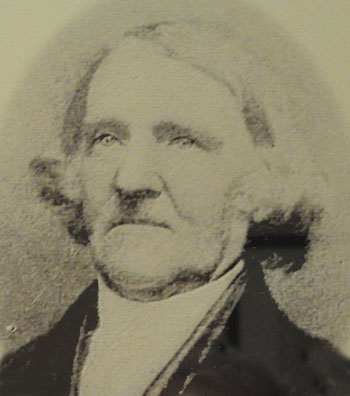09 Jul On This Day in UB History: July 9 (Bishop William Brown)

Bishop William Brown
Michael Brown immigrated from Alsace, located in eastern France on the German border, and settled in the Tulpehocken Valley near Lebanon, Pa. He was considered one of the early converts of the revival movement started by Martin Boehm and William Otterbein.
As he lay dying, Michael, surrounded by family, “exhorted till the place became as the very gate of heaven.” When he finally died, the patriarch’s hand was resting upon the head of a seven-year-old grandson named William.
“From that hour,” wrote biographer Henry Adams Thompson, “the child’s heart was drawn towards God and heaven.”
William Brown, born July 9, 1796, was raised in a Christian home. He said his own conversion occurred at age 16 during a barn meeting in Carlisle, Pa. He recalled, “I was happy day and night for months. Often, after all had retired at night, I would walk out, look up into the starry heavens, and think of Jesus and heaven until, before I was aware of it, I would be running with outstretched arms, praying to Jesus to give me wings to fly home to glory.”
Brown became a licensed United Brethren minister in 1816. For the next eight years, he frequently traveled with Bishop Christian Newcomer, who often referred to Brown in his journal. Upon reaching an appointment, typically Newcomer would preach, and then Brown would preach (Brown was apparently no warm-up act). Brown was known to preach in both German and English.
In 1819, Brown began two years on the Virginia Circuit, which consisted of 30 appointments. It took him four weeks, and 300 miles of travel on horseback, to cover them all.
Brown was a member of the 1821 General Conference which took our first stand against alcohol. He played a key role. One minister offered a resolution saying, “No preacher shall be allowed to carry on a distillery.” Brown proposed replacing “preacher” with “member,” convinced that what was good for preachers was good for everyone. After much debate, the conference settled on, “Neither preacher nor lay member shall be allowed to carry on a distillery.”
In 1833, Brown was among the six Pennsylvania Conference delegates to General Conference, which met south of Columbus, Ohio. The number of bishops was increased from two to three. Brown and Samuel Heistand were elected as rookie bishops, joining Henry Kumler, Sr., who had been serving alone for three years following the death of Christian Newcomer.
William Brown served just four years as bishop. In 1838, he moved to Benton County, Indiana, located on the Illinois border near Lafayette. His father had apparently moved there some years before. Brown covered several circuits, was presiding elder for that area, and according to Thompson, “was preaching more or less all the time.”
Bishop William Brown died May 11, 1868, at age 71, from congestion of the liver. He viewed funeral sermons as improper, and didn’t want one at his own funeral. So there was none.

No Comments